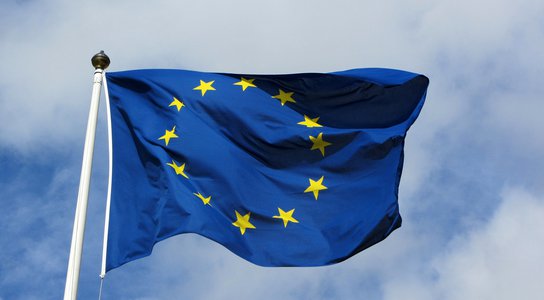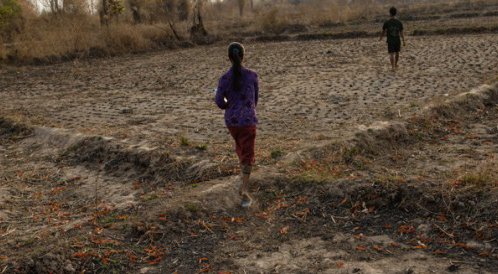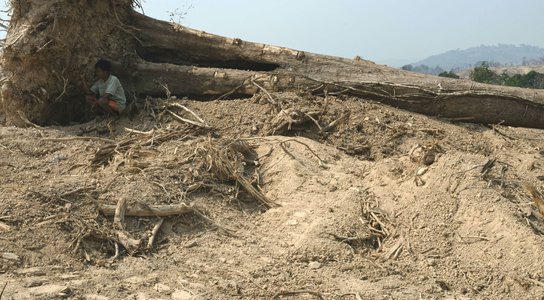Companies looking for land to grow crops like palm oil, for industries like oil, gas or mining, or for housing and infrastructure, rely on finance and loans from the financial institutions we in the European Union (EU) invest in. However, with few rules in place to regulate those investors, there is little to stop them financing projects that are socially or environmentally damaging. Below are 8 facts you didn’t know about sustainable finance in the EU – and how crucial it is.
1. This isn’t something that just impacts on a faceless financial company – investments as granular as your own pension could be implicated in unethical or harmful investments without you realising.
Our case studies[1] have demonstrated the involvement of EU investments in projects causing land grabs, human rights abuses and deforestation. This applies to hedge funds, banks, institutional investors – down to individual people’s investments, like their pensions. It’s critical that consumers and businesses alike know what their investments are driving. That’s why sustainable finance is so important.
2. Investors committing these kind of land grabs are not necessarily shady hidden funds – they can be global financial players.
Our ‘Rubber Barons’ report revealed the devastating impact of Vietnam’s rush for rubber on local communities in Laos and Cambodia. The investigation shows how international financiers Deutsche Bank and the International Finance Corporation were backing these land grabs – often in contravention of their own policies. Our report ‘The New Snake Oil?’ showed how state officials in Liberia were said to be helping the palm oil company Golden Veroleum harass communities into signing away their land and crush dissent - with Standard Chartered, HSBC, and Citibank alone holding shares in Golden Veroleum’s parent company - Golden Agri-Resources - worth nearly US$ 1.5 billion.
3. The European Union’s role is crucial…
EU-based banks and investment institutions are major funders of large-scale commercial agriculture projects in tropical regions. These projects often lead to deforestation and human rights abuses for displaced communities. The EU’s investment industry is worth over €22.8 trillion and still growing.[2] That is a ratio of 138% to the European GDP.[3] This industry invests in companies throughout Europe and the beyond into the developing world. The EU is therefore a huge global player and has a responsibility to ensure finance and investment from Europe is supporting sustainability goals and not harming people and the planet.
4. ...but it’s falling behind global trends on sustainable finance
Social and environmental regulations for financial institutions are gaining traction around the world, potentially leaving the EU behind. Brazil, China, Bangladesh, Nigeria, Indonesia and Peru have all moved to introduce social and environmental risk management and reporting requirements on banks and in some cases other financial institutions[4].
5. Companies and investors are actually at a higher risk without robust sustainable financial regulations
It’s a believed and common myth that increased regulations will reduce European competitiveness and make the EU financial sector less profitable. The reality on the ground tells a very different story. Financial risks for companies posed from not addressing environmental, social and governance risks such as land grabbing are multiple. A study of extractive, logging and agribusiness concessions in eight tropical countries found that 93% of them involved land already inhabited by local communities.[5] The average global operating costs of a three-year USD$10 million investment could be 29 times higher than normal if the project was forced to stop because of local community opposition[6]. Another example from our work - the launch of Global Witness’ report ‘Rubber Barons’ reportedly coincided with a 6% drop in HAGL’s share price, representing a US$20 million personal loss for the company’s Chairman. [7]
6. Voluntary measures don’t work
Apart from two legislative proposals, the majority of the Actions within the Commission’s new Sustainable Finance Action Plan rely on voluntary measures and are non-binding. A number of studies by the UN have highlighted how the UN Global Compact and Principles of Responsible Investment aren’t being implemented, and that agreeing to a principle of policy is not sufficient. Put simply, if the plethora of voluntary initiatives designed to help companies behave responsibly, protect the environment and respect human rights were fit-for-purpose, we would not have seen the land grab phenomenon reaching such a global crisis[8].
7. Currently, there are no measures in place to ensure investors conduct due diligence on all environmental, social and governance (ESG) risks in their investment chains or decision-making
Mandatory due diligence is essential to ensure investors are mitigating against risks to people and the environment and not driving corruption and other governance black holes. It would immediately help families across Africa and Asia who are being forced off their land due to projects backed by money from European investors. Additionally, of critical importance in terms of the identification, prevention, mitigation and accounting of adverse sustainability impacts, is that due diligence and other risk monitoring and management strategies are considered an ongoing process. A global study in 2016 of 362 cases of natural resource-based investments which had encountered land tenure disputes with local communities, identified that 58% of disputes started during the identification, preparation and establishment phases of the projects, with a further 31% of disputes starting during the operational phase[9]. During the identification phase only 12% of disputes had started, highlighting the limitations of due diligence if done only when projects are in the feasibility stages.
8. The EU is able to regulate how investors registered within its jurisdiction operate, even when overseas, in three key ways:
1. Introduce mandatory due diligence and establish systems to improve access to justice for victims of corporate abuses. The French Duty of Vigilance Law[10] shows how this can be done, covering companies collecting financing in Europe or selling financial products in Europe, even for operations outside of Europe. Other examples include the UK and the USA, both of which require companies overseas to follow national anti-corruption legislation.
2. Broaden
the scope of the proposed EU sustainable finance taxonomy to
genuine sustainability and not narrow climate change-related risks; only
investments and products that respect all dimensions of E, S and G should be
considered sustainable.
3. Use the
forthcoming financial reporting review to establish reporting requirements for companies
as part of their corporate registration and annual reports, and ensure that
these reports are freely available to the public, in a structured and
harmonised European format.
NOTES
[1] https://www.globalwitness.org/en/campaigns/land-deals/land-grabbing-starts-in-our-financial-centres/
[2]https://www.efama.org/Publications/Statistics/Asset%20Management%20Report/EFAMA%20Asset%20Management%20Report%202017.pdf
[3]https://www.efama.org/Publications/Statistics/Asset%20Management%20Report/EFAMA%20Asset%20Management%20Report%202017.pdf
[4] SOMO (2015) Mobilising the financial sector for a sustainable future: mapping existing approaches to promote social and environmental sustainability goals in the financial sector, available for download at: www.somo.nl/publications-en/Publication_4255/at_download/fullfile
[5] RRI (2014) Communities as Counterparties: Preliminary review of concessions and conflict in emerging and frontier market concessions: http://bit.ly/2DdJ3uw
[6] RRI and TMP (2012) The Financial Risks of Insecure Land Tenure: An Investment View: http://bit.ly/1gWTiCh and RRI (2014) Communities as Counterparties: Preliminary review of concessions and conflict in emerging and frontier market concessions: http://bit.ly/2DdJ3uw
[7] Global Witness (2013) Annual Report: http://bit.ly/2FNqLlm
[8] UN Global Compact Office (2011), United National Global Compact Office Annual Review, available for download at: https://www.unglobalcompact.org/docs/news_events/8.1/UN_Global_Compact_Annual_Review_2010.pdf; UN Environment Programme (2009) Fiduciary responsibility: legal and practical aspects of integrating environmental issues into institutional investments, available for download at: www.unepfi.org/fileadmin/documents/fiduciaryII.pdf; UN Principles for Responsible Investment (2011) 5 Years of Progress, Report of Progress 2011: an analysis of signatory progress and guidance on implementation, available for download: http://www.unpri.org/viewer/?file=wp-content/uploads/2011_report_on_progress1.pdf; the findings of these reports are also summarised in the 2015 report by SOMO, Mobilising the financial sector for a sustainable future: mapping existing approaches to promote social and environmental sustainability goals in the financial sector, available for download at: www.somo.nl/publications-en/Publication_4255/at_download/fullfile
[9] TMP Systems (2016) IAN: Managing Tenure Risk: http://bit.ly/2BbPNaw
[10] https://www.legifrance.gouv.fr/eli/loi/2017/3/27/2017-399/jo/texte


